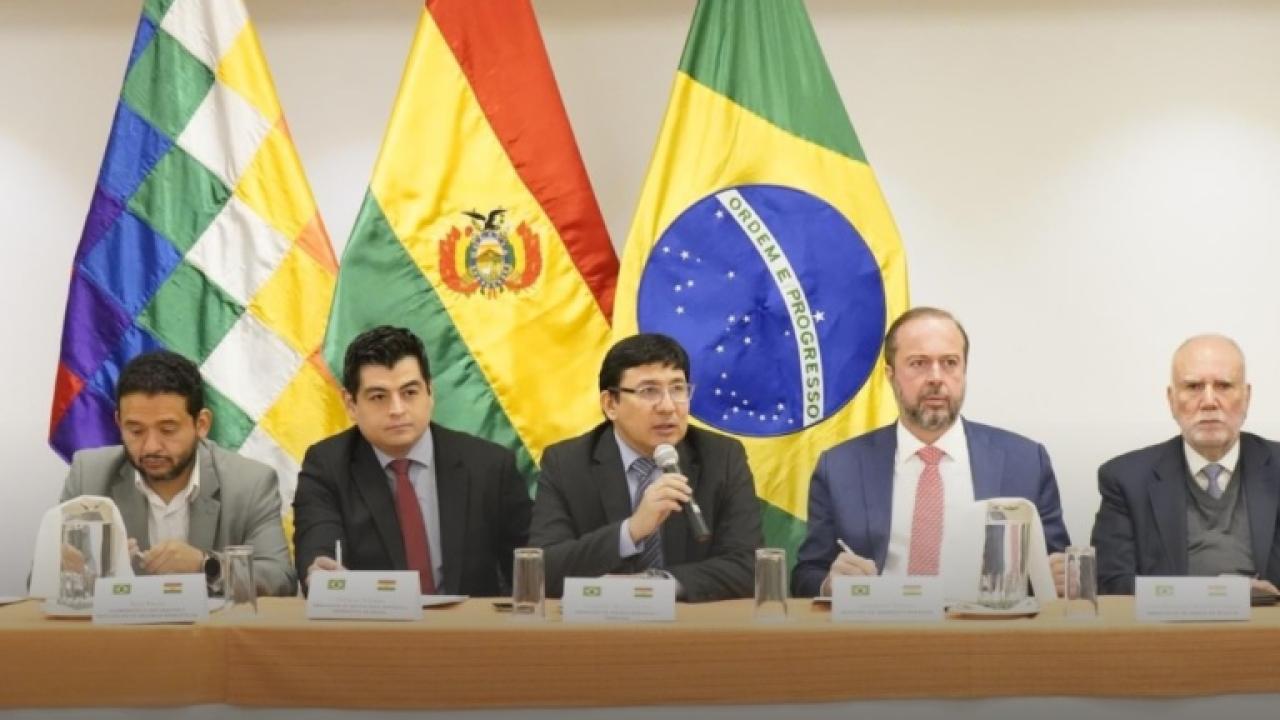
The National Secretary of Geology and Mines of Brazil highlighted the importance of acquiring Bolivian potassium due to its proximity since it currently demands fertilizer from Russia and Canada.
The governments of Bolivia and Brazil highlighted the importance of strengthening cooperation in strategic areas such as the production of gas, fertilizers (potassium chloride, NPK, urea and other macronutrients such as boron, calcium, etc.) and lithium.
This collaboration is fundamental for the sustainable development and economic growth of both countries, taking advantage of natural resources in an efficient and sustainable manner.
The Minister of Hydrocarbons and Energy of Bolivia, Franklin Molina, and his counterpart of Mines and Energy of Brazil, Alexandre Silveira, held bilateral meetings to explore opportunities and establish cooperation agreements that promote joint investment in the aforementioned areas.
Furthermore, within the framework of the signed agreements, Molina referred to Yacimientos de Litio Bolivianos (YLB) which has a potassium chloride (KCl) plant with a maximum capacity of 350,000 tons per year.
These projects exemplify the potential to establish a scenario of immediate provision to Brazil, which boosts the productivity of the Brazilian agricultural sector.
Faced with the challenges of energy and food security, Vitor Saback, national secretary of Geology and Mining, of the Ministry of Mines and Energy of Brazil, highlighted the importance of potassium, currently obtained from Russia and Canada at competitive prices.
However, this dependency creates vulnerability in terms of security of supply, due to logistics.
DEMAND
In this context, Saback highlighted the relevance of Bolivia, “a brother and neighboring country, as a more viable solution.” Bolivia, adjacent to Mato Grosso do Sul, one of the largest agricultural centers in the world, “is presented as a strategic option to strengthen food security and reduce dependence on distant sources,” he stated.
Faced with the challenge of 9 million tons of potassium chloride, the Brazilian official indicated that an increase of 4% is sought in the production of potassium chloride, an objective that drives this initiative.
The intention is to generate a meeting between the offer, represented by YLB, and the consumer companies in the Brazilian fertilizer and agromineral sector, he added.
Molina pointed out that Bolivia developed this production itself, and overcomes challenges through a process of trial and error.
He highlighted that Bolivian state companies, although incipient in terms of technology and experience, achieved significant advances in an industry that is new and growing in Bolivia.
The authority maintained that there is the possibility that Brazil supports these initiatives through technology transfer and technical assistance.
In that sense, he said that the neighboring country, with its conglomerate of industries that import machinery, equipment and technology, can provide technical assistance and cooperation.









